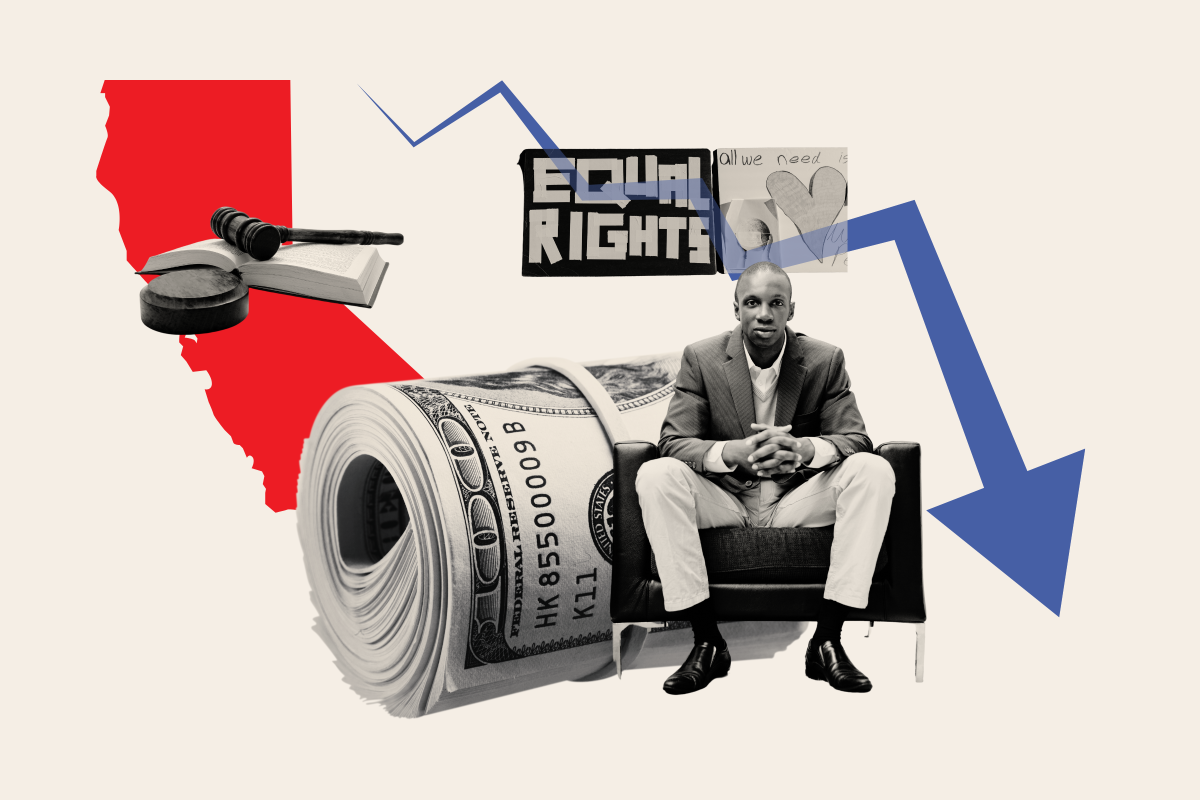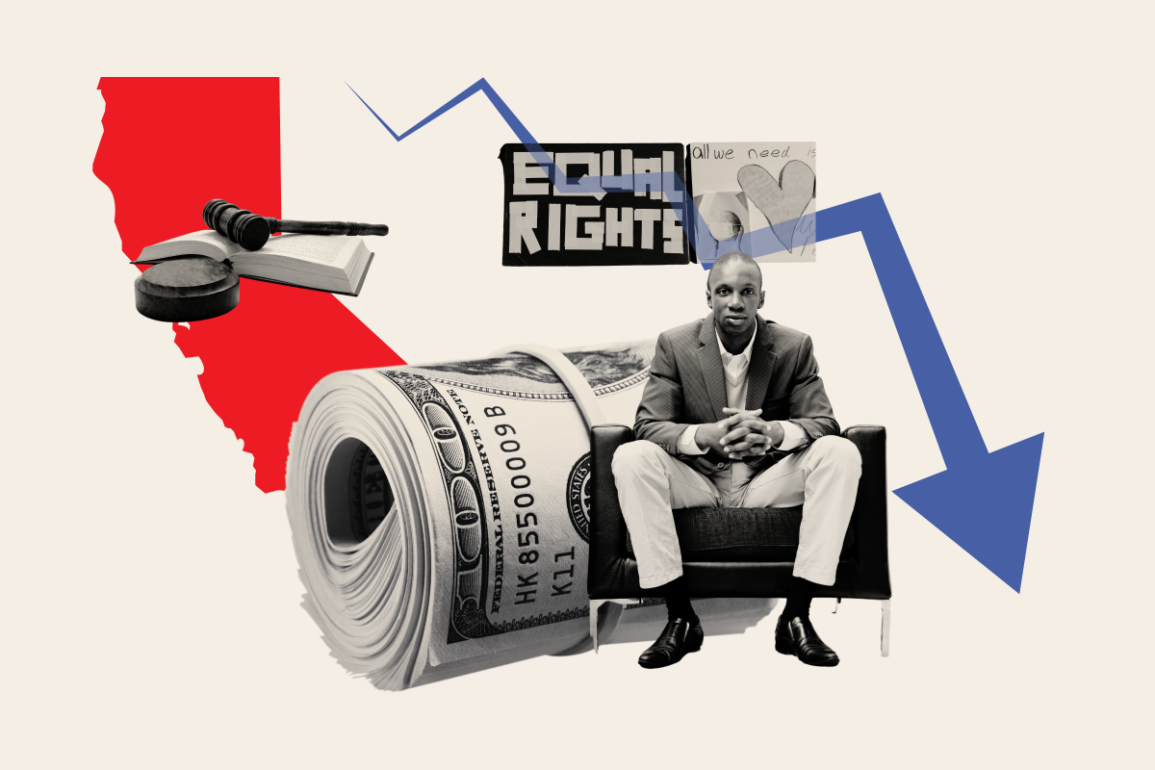California made history when it convened a task force in 2021 to study how the state could atone for its legacy of slavery and discrimination.
Last year, the task force approved its report with more than 100 recommendations and urged lawmakers to turn them into law.
Then in February, the California Legislative Black Caucus introduced a package of more than a dozen proposals inspired by the task force’s recommendations.
However, contending with a multibillion dollar budget deficit, the bills introduced so far do not include a proposal to provide direct payments to the descendants of enslaved Black people—which frustrated many advocates of reparations. The estimates for the total cost had run as high as $800 billion, almost three times California’s annual budget.
Now, as the nation marks another Juneteenth, celebrating the day when the last enslaved people in the U.S. learned they were free, California lawmakers are having to compromise on the measures that have been introduced, to build support and ensure that some of the task force’s recommendations become a reality in the state.
“Reparations, as the public have come to understand them, are not popular,” Giuliana Perrone, a historian and professor at the University of California Santa Barbara, told Newsweek.

Composite image of a Black man, a roll of dollar bills, a gavel and a stock market arrow going down. The total cost of reparations in California has caused lawmakers to compromise on some recommendations made by a task force.
Photo-illustration by Newsweek/Getty
“That’s because the public does not actually understand reparations. Many imagine that reparations are just payments or benefits given to certain people for past harms that occurred to their ancestors. This is incorrect. Reparations are meant to address the specific, ongoing harms that have continued to exist because the nation failed to fully abolish slavery.”
Over the weekend, members of California’s Legislative Black Caucus launched a statewide tour to make the case for the reparations bills.
Three of the bills in the package were passed by the California Senate last month, including one that would create the California Freedmen Affairs Agency to help Black families research their lineage and confirm their eligibility for any future restitution passed by the state.
The package also includes two proposed constitutional amendments that lawmakers are hoping to put to voters in the fall, including one measure that would amend the state constitution to outlaw forced labor in prisons and jails.
The U.S. Constitution and many state constitutions, including California’s, ban slavery but allow the government to force people to work as punishment for a crime—which has allowed corrections facilities to make inmates work for little or no pay. All but 16 states have removed the exception from their constitutions, but an effort to do so in California failed in 2022.
The proposal from Assemblymember Lori Wilson, a Democrat, was initially seeking to amend California’s Constitution to state that “slavery in any form is prohibited,” including “forced labor compelled by the use or threat of physical or legal coercion.”
But that language was struck last week, and the bill now says a prison or jail “shall not punish any incarcerated person for refusing a work assignment.”
It adds that the Department of Corrections and Rehabilitation, or any local entity operating a jail facility, can award an inmate “credit toward their sentence for voluntarily accepting a work assignment.” The measure must pass two Senate committees and meet a June 27 deadline for ballot measures in order to be put to voters in November.
The language in the proposal was softened on purpose to make the bill more appealing to voters, Assemblymember Corey Jackson said during a panel discussion in San Diego on Saturday, CalMatters reported.
He said that polling that tested variations of the ballot initiative found there was more support for a simplified version. “Of course, we also know that when you make something more simplistic you are watering down its effectiveness,” he said.
The change in the proposed amendment’s language demonstrates the balance that lawmakers have to strike to gain support for the reparations bills at a time when California faces a massive budget deficit.
“We want to make sure we have some wins we can build up to,” Jackson said. “People need to know that when you do things on reparations, the state isn’t going to fall apart. As a matter of fact, it’s going to improve the state overall.”
His office has been contacted for further comment via email.
But watering down the language in the proposed amendment “is a grave mistake,” according to Perrone, the author of Nothing More Than Freedom: The Failure of Abolition in American Law.
“The punishment clause of the 13th Amendment has become representative of abolition’s failure in U.S. law,” she said. “Failure to eradicate this language in its totality—not replace it with something vague—fails to achieve the desired outcome of removing slavery fully from the state’s constitution. You can’t leave that open to interpretation.
“History tells us what happens when you do that—the ongoing effect of the punishment clause proves the point. There can be no middle ground here without fatally compromising the goal of abolishing slavery. In most cases, politics involves compromise. But this isn’t one of those cases.”
Peronne noted that ending involuntary penal servitude would mean that California would have to pay inmates for the work they do in some form.
“That’s not specifically in the proposed bill, but it’s the obvious outcome,” she said. “For some, this is the problem. Paying minimum wage to inmates, for instance, would be extremely expensive for the state.”
The legislation to change California’s Constitution to ban all forms of involuntary servitude in 2022 failed after Governor Gavin Newsom‘s office warned that it could require the state to pay inmates a minimum wage—which is $15 per hour in California—and cost taxpayers about $1.5 billion a year.
But that could be a positive thing, Perrone said. “The huge price tag would force us to consider the rates of incarceration in California, and think critically about who we incarcerate and why,” she said.
Roy L. Brooks, a professor at the University of San Diego School of Law and author of Atonement and Forgiveness: A New Model for Black Reparations, said California lawmakers must think carefully on how to proceed.
“Given the economic environment in California today, the current reparation package clearly overpromises,” Brooks told Newsweek. “Overpromising can lead to racial despair as it has in other countries.”
The California Legislature should convene a meeting of the “best minds on reparations to determine how best to proceed,” he said.
“Otherwise, I fear that reparations will not happen in California, and if does not happen in California, it is unlikely to happen in any place else in the U.S.”
Uncommon Knowledge
Newsweek is committed to challenging conventional wisdom and finding connections in the search for common ground.
Newsweek is committed to challenging conventional wisdom and finding connections in the search for common ground.



